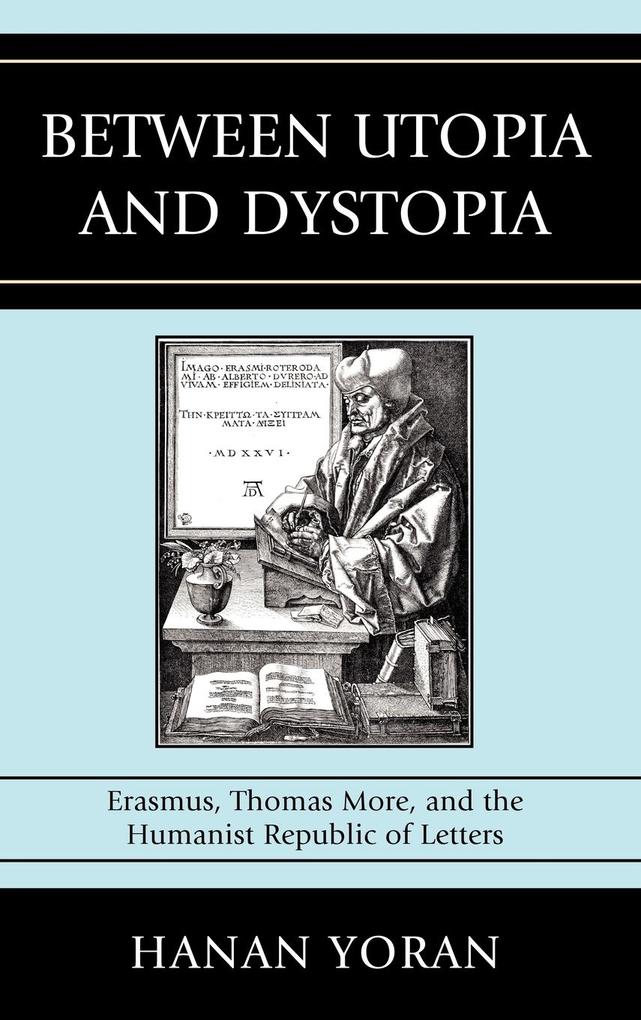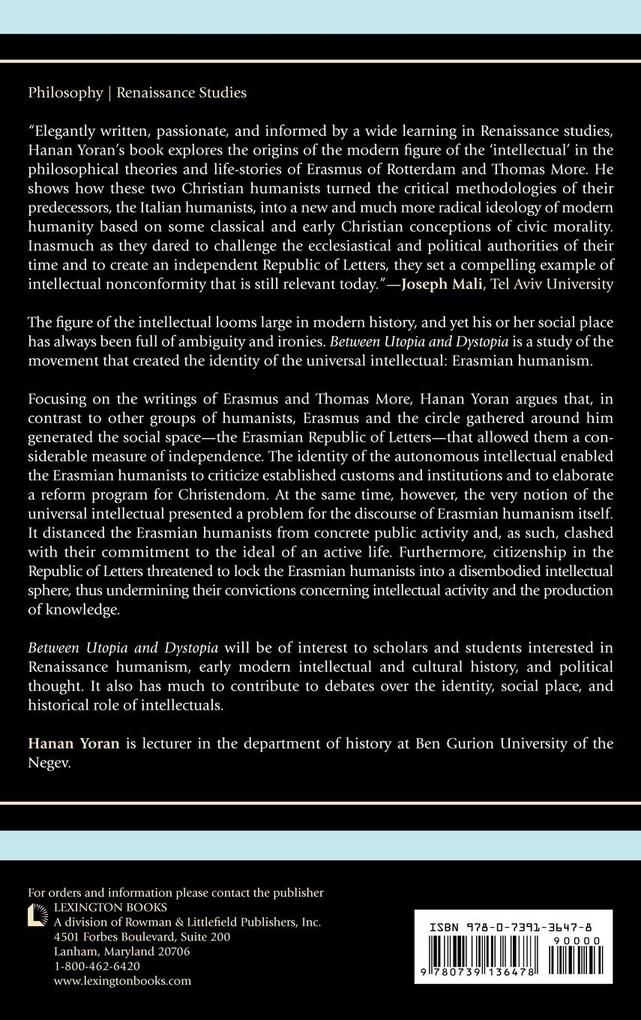
Zustellung: Do, 22.05. - Mo, 26.05.
Versand in 1-2 Wochen
VersandkostenfreiBestellen & in Filiale abholen:
Between Utopia and Dystopia offers a new interpretation of Erasmian humanism. It argues that Erasmian humanism created the identity of the universal and critical intellectual, but that this identity undermined the fundamental premises of humanist discourse. It closely reads several works of Erasmus and Thomas More, employing an interdisciplinary approach to the study of intellectual history, and adopting theoretical insights and methodological procedures from various disciplines.
Inhaltsverzeichnis
Introduction
Part I. The Erasmian Republic of Letters
Chapter 1. Humanism as Form
Chapter 2. The Construction of the Erasmian Republic of Letters
Chapter 3. Erasmian Humanism: The Reform Program of the Universal Intellectual
Part II. The Erasmian Republic and Its Discontents
Chapter 4. The Politics of a Disembodied Humanist
Chapter 5. More's Richard III: The Fragility of Humanist Discourse
Chapter 6. Utopia and the No-place of the Erasmian Republic
Conclusion
Part I. The Erasmian Republic of Letters
Chapter 1. Humanism as Form
Chapter 2. The Construction of the Erasmian Republic of Letters
Chapter 3. Erasmian Humanism: The Reform Program of the Universal Intellectual
Part II. The Erasmian Republic and Its Discontents
Chapter 4. The Politics of a Disembodied Humanist
Chapter 5. More's Richard III: The Fragility of Humanist Discourse
Chapter 6. Utopia and the No-place of the Erasmian Republic
Conclusion
Produktdetails
Erscheinungsdatum
19. April 2010
Sprache
englisch
Seitenanzahl
264
Autor/Autorin
Hanan Yoran
Verlag/Hersteller
Produktart
gebunden
Gewicht
584 g
Größe (L/B/H)
235/157/20 mm
ISBN
9780739136478
Entdecken Sie mehr
Pressestimmen
Elegantly written, passionate, and informed by a wide learning in Renaissance studies, HananYoran's book explores the origins of the modern figure of the 'intellectual' in the philosophical theories and life-stories of Erasmus of Rotterdam and Thomas More. He shows how these two Christian humanists turned the critical methodologies of their predecessors, the Italian humanists, into a new and much more radical ideology of modern humanity, based on some classical and early Christian conceptions of civic morality. Inasmuch as they dared to challenge the ecclesiastical and political authorities of their time and to create an independent Republic of Letters, they set a compelling example of intellectual nonconformity that is still relevant today. -- Joseph Mali, Tel Aviv University This study should prompt readers to think carefully about the early sixteenth-century humanist movement from a fresh perspective. Renaissance Quarterly Recommended. CHOICE Readers who resist Yoran's characterization of the autonomous universal intellectual for being tendentious will miss some of the more provocative insights this approach yields...Yoran's bold and insightful investigation solves old problems and raises new questions, and specialists in Northern humanism generally, as well as interpreters of the two focal figures [Erasmus and More], will be instructed and stimulated by this comparative study. Erasmus Of Rotterdam Society Indeed, the whole book is redolent of deep immersion in its subject, and of a passionate desire to make Milton's masque speak to contemporary society. Milton Quarterly Between Utopia and Dystopia will be of considerable interest to those concerned with the history of ideas for its exploration of oppositions in humanist texts. Sixteenth Century Journal
Bewertungen
0 Bewertungen
Es wurden noch keine Bewertungen abgegeben. Schreiben Sie die erste Bewertung zu "Between Utopia and Dystopia" und helfen Sie damit anderen bei der Kaufentscheidung.











